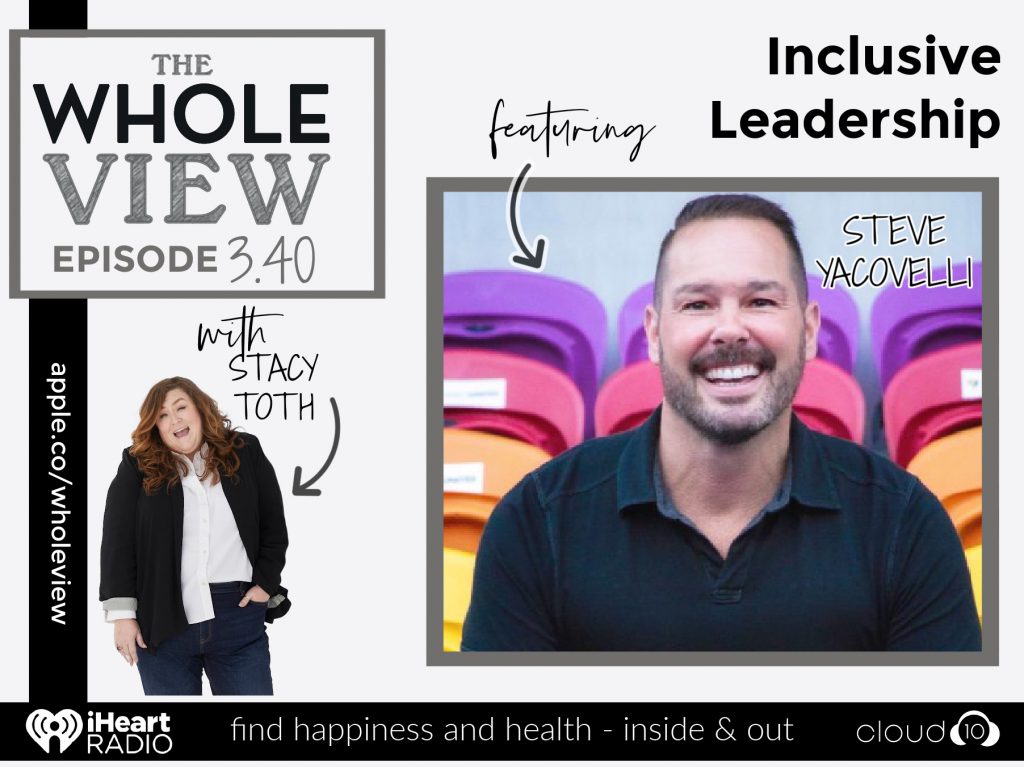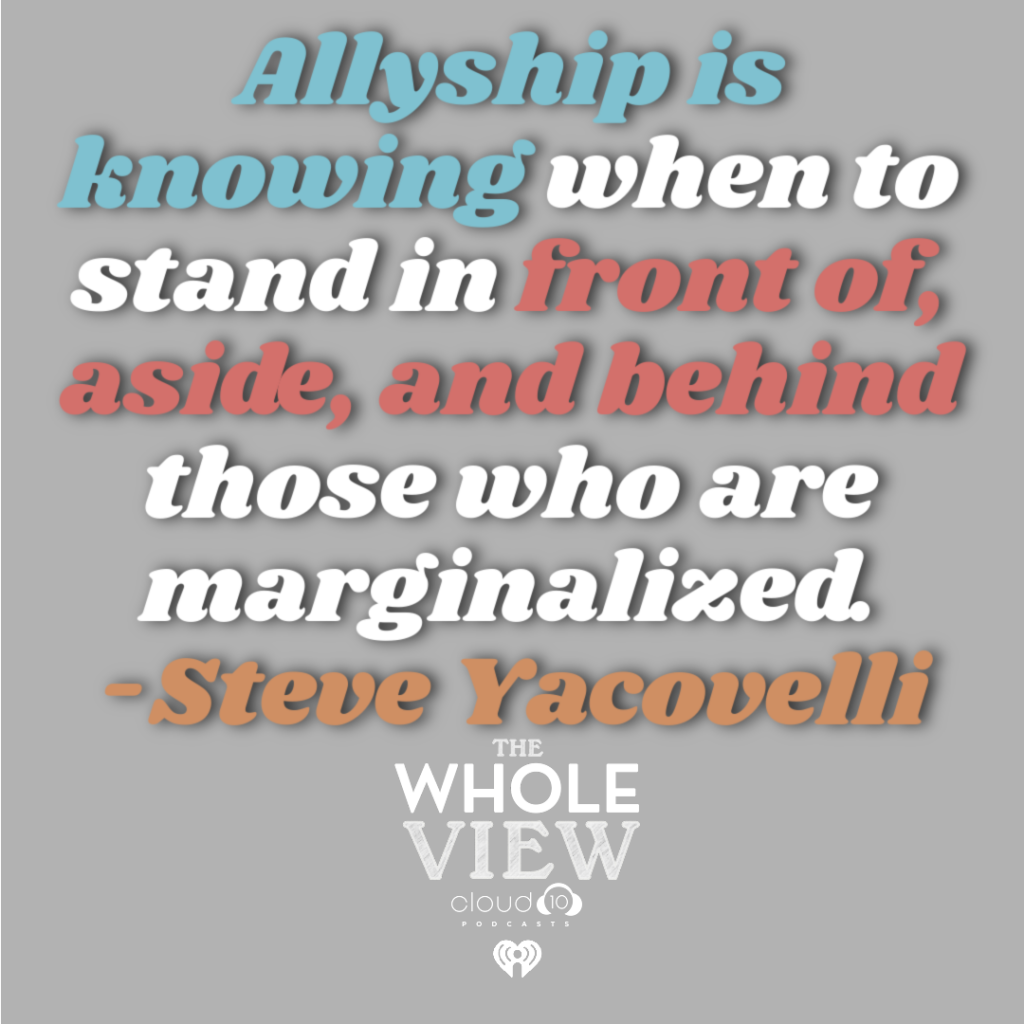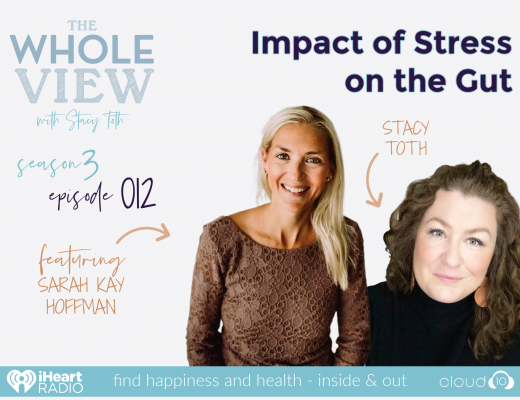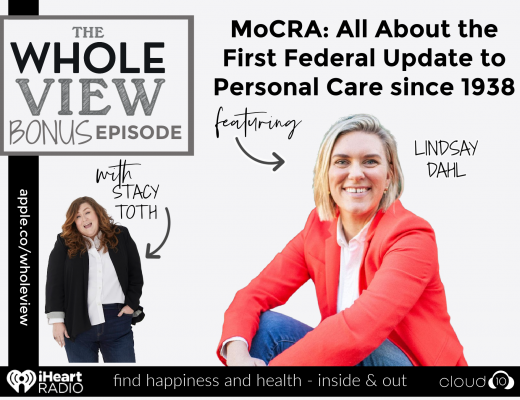Welcome Steve Yacovelli to the Whole View! This week, Stacy and Steve dive deep into allyship, inclusive leadership, and what we can do to give each other better seats at the table. Steve brings his years of experience working with diversity and inclusivity, and gives listeners actionable steps they can take to becoming a better ally.

Find Steve:
If you enjoy the show, please leave a review. Letting people know on iTunes or however you listen that it’s worth their time could change someone’s life!

Key Takeaways
Introductions
- Dr. Steve Yacovelli (“The Gay Leadership Dude”) is Owner & Principal of TopDog Learning Group, a learning and development, leadership, change management, and diversity and consulting firm based in Orlando, FL, with affiliates across the globe.
- Additionally, Steve and TopDog has had the pleasure of working with some great client-partners who we consider to be members of his “pack.” He’s worked with Fortune 500 greats like The Walt Disney Company and Bayer to amazing not-for-profits like The Bill & Melinda Gates Foundation and The American Library Association. He’s also worked with large universities like The Ohio State University and The University of Central Florida, to small entrepreneurial rock stars like International Training & Development and GovMojo, Inc.
- With over twenty-five years’ experience in leadership, strategy, organizational learning, and communication, Steve is a rare breed of professional that understands the power of using academic theory and applying it to the corporate setting to achieve business results. He’s quite fond of dogs, too!
- TopDog started as a side-hustle. Then, in 2007, Steve found himself out of a job and started focusing on the business full-time.
Inclusive Leadership
- When we think about the diversity of humans, you go down the path of listing ways in which we’re different from each other. Race, ethnicity, sexual orientation, gender, physical ability, religion, parental status, marital status are all facets of what makes us unique in how we see the world.
- Diversity is the many similarities and differences between people. Inclusion is about the environment we strive to create where people feel heard and have space at the table. Diversity is being invited to the dance, but inclusion is dancing at the dance and being an active member within this situation.
- Furthermore, It’s now not just diversity inclusion, but belonging.
- Change happens when you consciously make an effort to not just say things, but to make change. The organizations that are being smart about it and getting traction are the ones implementing change to create a better world, not just to look good on paper. They treat diversity and inclusion as an ongoing strategy that’s tied to their business.
- When speaking with someone with opposing beliefs, Steve has trained himself to pause, take a breath, and in the most neutral way possible, say: thank you for sharing that, how did you get to that conclusion? Then he listens to understand, not to respond.
- If you’re listening to this, if you’re breathing, you have bias. It’s uncomfortable to hear and many people don’t like it, but it’s how we’re made. It’s a survival mechanism that at one point was responsible for keeping us alive. However, it no longer fits in with our modern world and it’s up to us to do the unlearning required to make sure everyone has a seat and sense of belonging.
Topics Discussed
- In your experience partnering with organizations, why is this work important, especially for those in leadership roles? Do you have examples?
- We know people have been doing “DEI” (Diversity, Equity, and Inclusion) work for a long time, it became a bit of a buzz word in 2020 and many companies publicly jumped onto making statements and hiring individuals or forming committees around this work. How did this impact Steve’s work and what kind of follow-through (or not) has he seen since? What do leaders in organizations or groups need to do to make sure efforts don’t fizzle out or training doesn’t just check off boxes?
- For folks working in groups (work, community, etc) that may be responsible for recruiting or hiring “diverse” individuals, how does Steve coach leaders in this way? Also, how do those groups then create inclusive environments to retain these individuals and create space that they feel heard, included, and safe?
- How do folks that aren’t in traditional leadership roles translate this to their roles as leaders in their family or other groups?
- Many people doing DEI work are part of marginalized groups themselves, which can be emotionally and mentally taxing. What are some tangible ways allies can be a part of this work? How do allies move past just “educating” themselves and put their allyship into action without overstepping?
Want More? Have Questions?
Want more? Come join the Patreon community! You can support The Whole View podcast and hear what Stacy and her guests really think about the topic in this week’s exclusive and uncensored behind-the-scenes bonus audio. Also, we love connecting with our Patrons! It’s a direct line to submit your questions for upcoming shows. You also get access to some additional cool features like Q&As, voting on show topics and guests, and an exclusive commercial-free episode.
References & Products
- Havard’s Project Implicit Test
- Pride Leadership: Strategies for the LGBTQ+ Leader to be the King or Queen of Their Jungle by Dr. Steven R. Yacovelli
- Top Dog Learning Group’s Free Training to Beat Silent Collusion
- DEI leadership – and who’s actually doing the work?, Workable’s Resources for Employees
- The Hidden Cost of DEI Work—And What to Do About It, Nonprofit Quarterly
- DEI Is Not An Initiative; It Is A Reflection Of Your Leadership, Forbes
Sponsors
- ritual.com/WHOLEVIEW
- get 10% off your first 3 orders!
- Beautycounter.com/StacyToth
- The Winter Sale! get 40% or more off Stacy’s favorite safer personal care and better beauty brand!
Want more info on our Real Life? Healthy recipes, parenting tips, and general lifestyle stuff goes out in our Real Everything newsletter, join here.
Never want to miss a post, sale, or deal? Join my Healthy Inside & Out e-mail list for more info on non-toxic living and safer skincare!
Note: Stacy and her guests are not medical professionals. This podcast is for general educational purposes and NOT intended to diagnose, advise, or treat any physical or mental illness. We always recommend you consult a licensed service provider.




